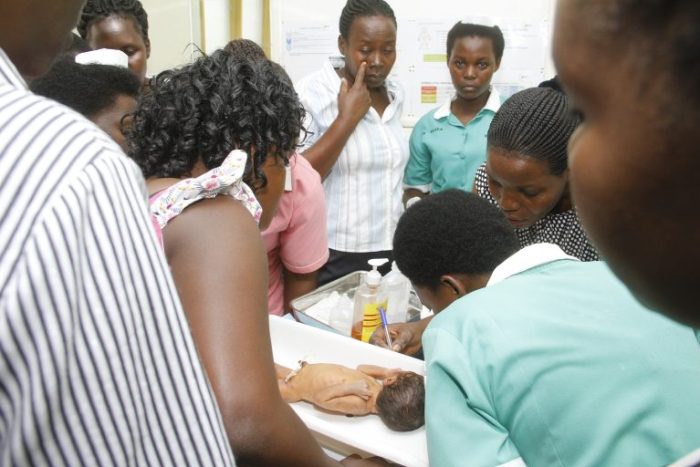
The Karolinska Institutet has joined partners to implement the five-year ALERT (Action Leveraging Evidence to Reduce perinaTal mortality and morbidity) project in four African countries including Uganda, Tanzania, Benin, and Malawi. In each country 5 hospitals will be engaged..

In Uganda, the project activities will be implemented by the Mak Centre of Excellence for Maternal Newborn and Child Health with Professor Peter Waiswa as Uganda’s focal person. This project will be benefiting Jinja regional referral hospital, Iganga hospital, Bugiri hospital and Kamuli mission hospital. These hospitals were selected because they are high volume public health facilities so there will be numerous lessons to pick from them. Kamuli mission hospital was selected so that the project can also pick learnings from the private not for profit side. It is estimated that over 100 midwives will be trained under ALERT and this will be according to their availability and willingness to participate. The beneficiaries to this project are mostly mothers and their newborns served by these hospitals.
“We hope to learn the importance of hospitals because they play a very vital role but they are under supported, marketed and financed…further get to see how hospitals work and measure their outputs through data strengthening using the electronic register at birth among other tools…most importantly we are looking forward to the capacity building at the hospitals, universities, district managers and among other development practitioners through this project.” Prof Peter Waiswa, ALERT principal investigator for Uganda.
About the ALERT intervention research project
The aim of the project is to develop and evaluate a multifaceted intervention to strengthen the implementation of evidence-based interventions and responsive care and reduce in-facility perinatal mortality and morbidity through a multidisciplinary approach in Benin, Malawi, Tanzania and Uganda.
The ALERT intervention will include four main components:
- end-user participation through narratives of women, families and midwifery providers to ensure co-design of the intervention
- competency-based training;
- quality improvement, supported by data from a clinical perinatal e-registry;
- empowerment and leadership mentoring of maternity unit leaders complemented by district based bi-annual coordination and accountability meetings.
